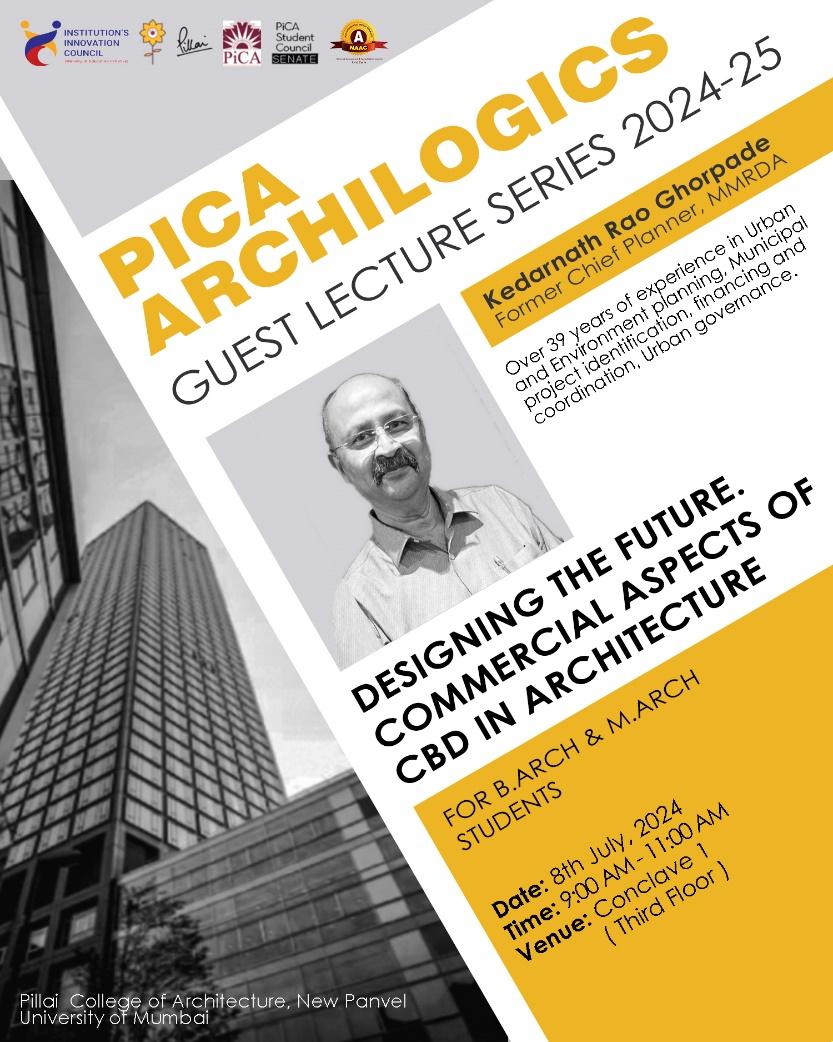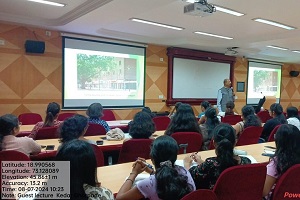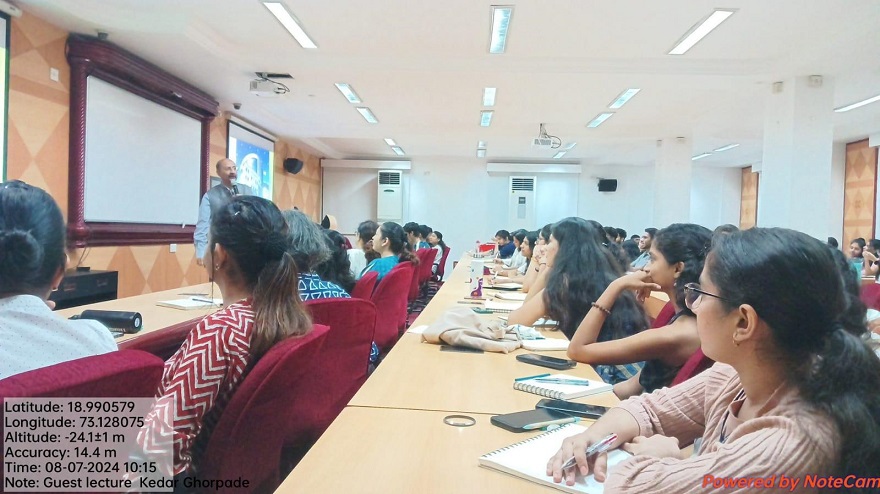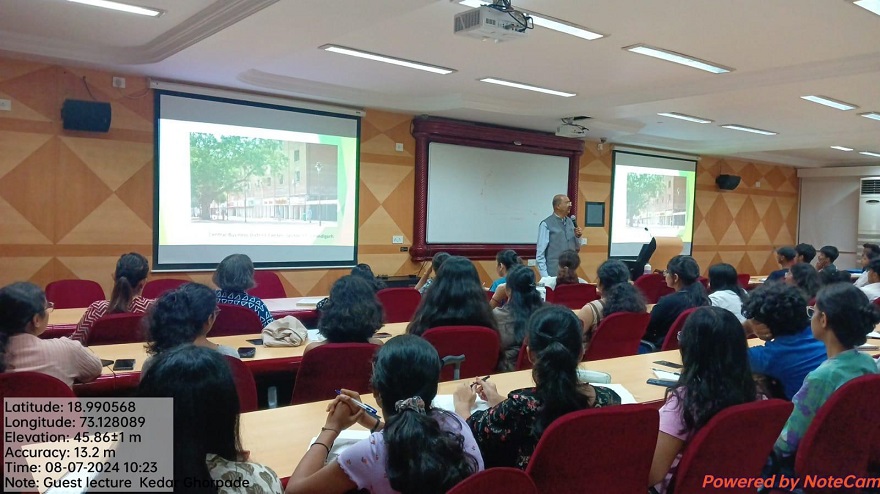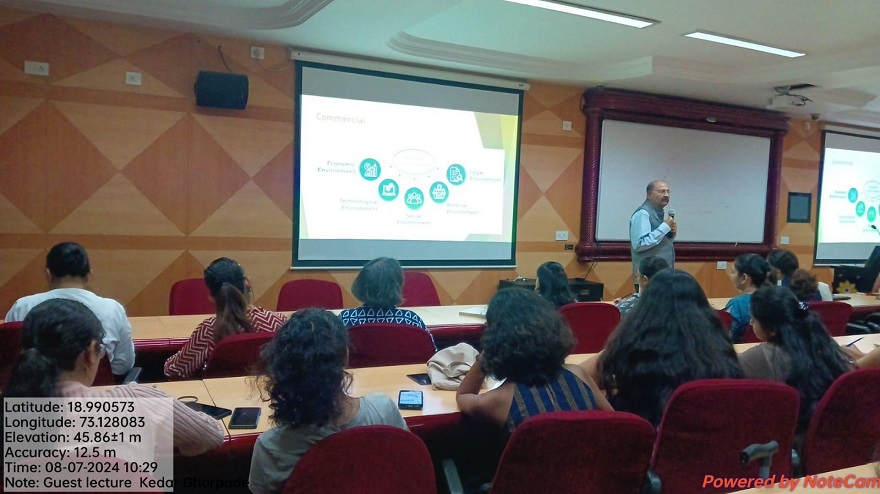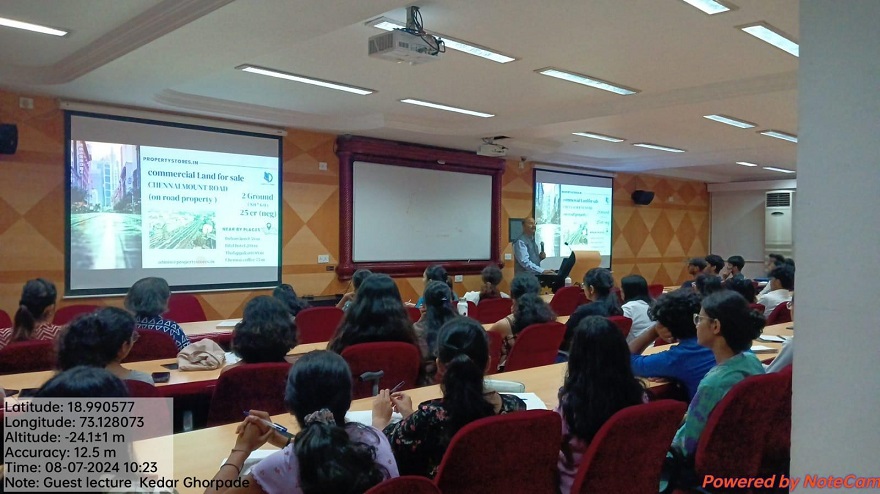| Date | 8th July, 2024 |
| Time | 9:00 a.m. - 11:00 a.m. |
| Venue | Conclave 1 |
| Session | 2024-25 |
| Faculty coordinator | Prof. Sarojini Lohot |
| Speaker | Kedarnath Ghorpade |
| No. of Students Participants | 60 |
On 8th July 2024, a guest lecture titled “Design the Future: Commercial Aspects of CBD in Architecture” was conducted by Kedarnath Rao Ghorpade for the students of the Master of Architecture (M.Arch.) & Bachelors of Architecture (B.Arch.) program. This engaging session aimed to enhance students’ comprehension of the myriad factors influencing the design of Commercial Business Districts and to foster a forward-thinking approach to CBD design within the Indian context.
The session Started with Professor Sarojini introducing Mr. Kedarnath Ghorpade and speaking about his extensive experience with the government large scale project
Objectives of the Lecture
The primary goal of the lecture was to equip students with an understanding of how various factors impact the design and functionality of CBDs. By exploring these elements, students were encouraged to adopt innovative strategies that align with contemporary urban challenges and opportunities in India.
Key Topics Discussed
The lecture covered several critical factors that affect the design of CBDs, including:
- Natural Resources: The availability and sustainable use of natural resources were discussed as fundamental elements in shaping the functionality and aesthetics of CBDs.
- Mobility: The importance of efficient transportation systems and pedestrian-friendly designs was emphasized, highlighting how mobility influences the accessibility and vibrancy of urban spaces.
- Finance: Economic considerations play a pivotal role in CBD development. The discussion included funding mechanisms, investment patterns, and economic viability of urban projects.
- Urban Planning Theories and Experiments: Various theories related to urban design were presented, alongside a review of both successful and failed urban planning experiments. The case studies of Amravati and Jaipur served as crucial examples to illustrate the complexities and outcomes of urban design decisions.
- Case Studies: Detailed analyses of existing CBDs in India provided students with real-world insights into how theoretical concepts are applied in practice, reinforcing the importance of contextual understanding in urban design.
Insights Gained
The lecture was instrumental in deepening the students’ grasp of urban design principles that contribute to the creation of vibrant, inclusive, and futuristic CBDs in India. Key takeaways included:
- The interconnectedness of various design factors and their cumulative impact on urban environments.
- The necessity of adopting a holistic approach that considers social, economic, and environmental dimensions in CBD planning.
- The value of learning from both successful and unsuccessful urban projects to inform future designs.
The session ended with very interactive question & answer session from the student & faculties side.
Kedarnath Rao Ghorpade’s guest lecture provided an enriching experience for M.Arch. & B.Arch. students, broadening their perspectives on the complexities of CBD design in India. The knowledge gained from this session will undoubtedly aid students in their future endeavours as they strive to contribute to the evolution of urban spaces in a rapidly changing world.
The guest lecture was successfully fostered an environment of inquiry and discussion, inspiring students to think critically about the challenges and opportunities inherent in designing the future of commercial business districts.
